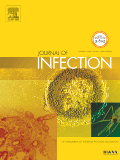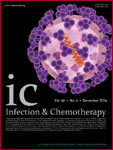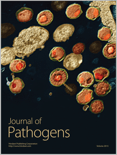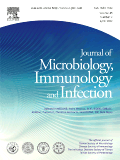
Infectious Microbes & Diseases
Scope & Guideline
Pioneering insights in microbiology and epidemiology.
Introduction
Aims and Scopes
- Microbiota and Immune Interactions:
Research exploring the relationship between various microbiota (oral, gut, etc.) and immune responses, particularly in the context of infectious diseases and conditions like HIV and inflammatory bowel disease. - Host-Pathogen Dynamics:
Studies that delve into the complex interactions between hosts and infectious agents, including viral and bacterial pathogens, highlighting mechanisms of disease progression, immune evasion, and therapeutic targets. - Clinical Diagnostics and Therapeutics:
Focused on advancements in diagnostic methodologies, including metagenomic sequencing and other innovative technologies, as well as the evaluation and development of therapeutic interventions for infectious diseases. - Epidemiology and Public Health:
Research addressing the epidemiological aspects of infectious diseases, including outbreak investigations, prevalence studies, and public health responses to emerging pathogens. - Antimicrobial Resistance:
Papers discussing the challenges associated with antimicrobial resistance, including the mechanisms of resistance and strategies for combating resistant infections.
Trending and Emerging
- Microbiota's Role in Disease:
An increasing focus on how microbiota influences immune responses and disease outcomes, particularly in relation to chronic infections and conditions such as HIV and inflammatory bowel disease. - Innovative Diagnostic Technologies:
A surge in publications addressing cutting-edge diagnostic methods, including next-generation sequencing and other novel techniques that enhance the detection of pathogens and their resistance profiles. - Impact of COVID-19 on Health Systems:
A growing body of research examining the effects of the COVID-19 pandemic on various health parameters, including mental health, chronic disease management, and healthcare delivery models. - Host-Virus Interactions:
Emerging research on the interactions between hosts and viruses, particularly zoonotic viruses, reflecting a greater awareness of the complexities involved in viral pathogenesis and host defense mechanisms. - Integrative Approaches to Infectious Disease Management:
A trend towards interdisciplinary studies that combine insights from microbiology, immunology, and clinical practice to develop comprehensive strategies for managing infectious diseases.
Declining or Waning
- Traditional Antimicrobial Therapies:
Research centered on conventional antibiotics and their mechanisms is becoming less frequent, possibly due to increased interest in alternative therapies and the urgent need to address antimicrobial resistance. - Historical Epidemiological Studies:
While historical epidemiological studies provided valuable insights, the current trend shows a decline in such studies, as researchers shift towards real-time data and novel methodologies for current infectious threats. - Single-Pathogen Focus Studies:
There is a noticeable decrease in studies focusing solely on single pathogens, as the trend moves towards understanding complex interactions involving multiple pathogens and the microbiome.
Similar Journals

INFECTION
Leading the Charge in Microbial ResearchINFECTION is a prestigious journal, published by Springer Heidelberg, that serves as a leading platform for the dissemination of critical research in the fields of Infectious Diseases, Microbiology, and Medicine. With an impressive Q1 ranking in multiple categories such as Infectious Diseases, Medicine (miscellaneous), and Medical Microbiology, the journal is recognized for its high-quality content and impactful contributions to the scientific community, as evidenced by its Scopus rankings placing it in the top 10th percentiles. Since its inception in 1973, and projected to continue until 2024, INFECTION has established itself as a vital resource for researchers, healthcare professionals, and students keen to explore the latest findings and advancements in infectious diseases. The journal provides a rigorous peer-review process, ensuring that only high-quality studies are published, making it an essential read for those seeking to deepen their understanding and stay abreast of the rapidly evolving landscape in infection research.

MEDICAL MICROBIOLOGY AND IMMUNOLOGY
Driving innovation in the study of microbes and their immune interactions.Medical Microbiology and Immunology is a renowned journal published by Springer, serving as a pivotal resource in the fields of microbiology and immunology. Established in 1971 and continuing its legacy through 2024, this journal features cutting-edge research and reviews that address critical advancements and challenges within these dynamic fields. With an impressive impact factor and a robust ranking, including Q1 categories in both Microbiology (medical) and Immunology, it stands at the forefront of scholarly communication, ranking 21st out of 140 in the realm of Medical Microbiology. Researchers and professionals are encouraged to explore a variety of studies that delve into the interactions between microorganisms and the immune system, making it an essential resource for anyone fascinated by these interconnected realms of health sciences. Although not open access, the journal is widely accessible through institutional libraries, ensuring that significant findings reach a global audience. The University of New York Plaza serves as its operational hub in the USA, reinforcing its international influence and dedication to advancing knowledge in microbiology and immunology.

ENFERMEDADES INFECCIOSAS Y MICROBIOLOGIA CLINICA
Empowering professionals with cutting-edge research in infectious diseases.ENFERMEDADES INFECCIOSAS Y MICROBIOLOGIA CLINICA is a prominent journal dedicated to the fields of infectious diseases and clinical microbiology, published by EDICIONES DOYMA S A in Spain. With an ISSN of 0213-005X and an e-ISSN of 1578-1852, the journal has been a cornerstone of research and scholarly communication since its inception in 1989. As of 2023, it holds a Q3 category ranking in Infectious Diseases, highlighting its significance in the field, alongside a Q4 ranking in the related area of Microbiology. Although the journal is not open access, it remains an essential resource for professionals, researchers, and students aiming to stay informed on advancements and studies that impact clinical practices in infectious diseases. With Scopus ranks indicating a percentile ranking in the 20th to 34th range across various sub-disciplines, ENFERMEDADES INFECCIOSAS Y MICROBIOLOGIA CLINICA continually contributes to the dialogue and development of science, fostering a deeper understanding of complex microbial interactions and disease mechanisms.

JOURNAL OF INFECTION
Connecting Researchers and Clinicians in Infection ScienceJOURNAL OF INFECTION is a premier academic publication in the fields of infectious diseases and medical microbiology, published by W B SAUNDERS CO LTD. With a profound impact factor and established since 1979, this journal serves as a crucial resource for researchers, clinicians, and policy-makers seeking to advance knowledge and understanding of infectious processes and their management. The JOURNAL OF INFECTION holds an impressive position in the academic hierarchy as reflected by its Q1 quartile rankings in both Infectious Diseases and Microbiology (medical) for 2023, further underscored by its Scopus rankings: #2 in Medical Microbiology and #5 in Medical Infectious Diseases, placing it in the 98th percentile overall. While the journal does not offer Open Access options, it provides a comprehensive outlet for innovative research, reviews, and clinical insights that drive the field forward. Published from the United Kingdom, it attracts a global readership keen on staying at the forefront of infectious disease research, making it an essential addition to any academic and clinical library.

Infection and Chemotherapy
Exploring Innovations in Infectious Disease TreatmentInfection and Chemotherapy, an esteemed journal published by the Korean Society of Antimicrobial Therapy, focuses on the dynamic fields of infectious diseases and pharmacology. With an ISSN of 2093-2340 and an E-ISSN of 2092-6448, this peer-reviewed, open-access journal has been providing a crucial platform for research dissemination since 2008. Based in South Korea, it boasts a significant impact in the academic community, as evidenced by its Q2 ranking in both Infectious Diseases and Pharmacology categories for 2023. It holds a Scopus rank of 64 out of 272 in Pharmacology and 98 out of 344 in Infectious Diseases, showcasing its prominence and the quality of research it publishes. With a focus on advancing scientific knowledge, Infection and Chemotherapy is committed to fostering essential dialogues among researchers, clinicians, and students, making it a vital resource for those engaged in the fight against infectious diseases and the development of effective therapeutic protocols.

Journal of Pathogens
Innovating Solutions in Microbiology and Disease ControlJournal of Pathogens is a premier peer-reviewed journal published by HINDAWI LTD, focusing on the critical field of microbiology, infectious diseases, and the mechanisms of pathogen interactions with hosts. Since its inception in 2011 as an Open Access journal, it has aimed to provide a platform for high-quality research articles, reviews, and case studies that enhance our understanding of pathogenesis and advance the science of disease control. With its commitment to making research freely accessible, the journal attracts a global audience of researchers, professionals, and graduate students keen on exploring innovative findings and applications in the study of pathogens. While the journal does not currently have an established H-index or category quartiles, its relevance and importance in the field continue to grow as it seeks to bridge knowledge gaps and facilitate impactful discussions in infectious disease research. Located at Adam House, 3rd Floor, 1 Fitzroy Square, London W1T 5HF, England, the Journal of Pathogens invites submissions that contribute to the ever-evolving landscape of pathogen research and public health.

CLINICAL MICROBIOLOGY AND INFECTION
Leading the Charge Against InfectionsCLINICAL MICROBIOLOGY AND INFECTION is a leading journal published by Elsevier Science Ltd, dedicated to advancing the field of infectious diseases and clinical microbiology. With its ISSN 1198-743X and E-ISSN 1469-0691, this esteemed journal has maintained its influential presence since 1995, showcasing high-impact research that addresses critical issues in the diagnosis, treatment, and prevention of infections. Ranked in the Q1 quartile for Infectious Diseases, Medicine (miscellaneous), and Microbiology (medical) categories, and boasting impressive Scopus rankings of #12 and #7 respectively, it sits at the forefront of scientific inquiry in these disciplines. Although it is not an Open Access journal, it provides comprehensive access options for institutions and individuals, ensuring the dissemination of vital research findings. As the field of clinical microbiology continues to evolve, CLINICAL MICROBIOLOGY AND INFECTION remains an essential resource for researchers, clinicians, and students aiming to stay informed on the latest developments and breakthroughs in understanding infectious diseases.

Archives of Clinical Infectious Diseases
Transforming Knowledge into Practice in Infectious DiseasesArchives of Clinical Infectious Diseases is a peer-reviewed journal dedicated to advancing knowledge in the field of infectious diseases, published by BRIEFLAND in Iran. With a broad scope, it covers various aspects of cardiology, critical care, immunology, microbiology, public health, and toxicology, affirming its relevance in today's health landscape. Despite the lack of open access options, the journal maintains a strong reputation, reflected in its Q3 ranking in multiple categories within the 2023 category quartiles. The journal aims to provide a platform for researchers and practitioners to disseminate critical findings that can impact clinical practices and public health policies. Its commitment to rigorous peer review ensures that only high-quality research is published, thereby serving as an essential resource for professionals, students, and public health advocates. For those engaged in the ever-evolving world of infectious diseases, Archives of Clinical Infectious Diseases stands as a vital contribution to the medical literature.

JOURNAL OF MICROBIOLOGY IMMUNOLOGY AND INFECTION
Transforming healthcare through impactful research.Welcome to the Journal of Microbiology Immunology and Infection, a premier academic publication established in 1998 and now proudly owned by Elsevier Taiwan. As an Open Access journal since 2016, it provides unrestricted access to groundbreaking research in the fields of immunology, microbiology, and infectious diseases, making it an essential resource for researchers, practitioners, and students alike. The journal holds impressive rankings, including Q1 status in categories such as Infectious Diseases and Microbiology (medical), and a notable 92nd percentile in its Scopus ranking for Medicine - Infectious Diseases. With a dedicated focus on advancing knowledge and fostering collaboration within the scientific community, the Journal of Microbiology Immunology and Infection is committed to publishing high-impact research that significantly influences practice and policy in healthcare and life sciences. The journal is also recognized for its contribution to the ongoing dialogue surrounding contemporary issues in immunology and infection, positioning it as a vital platform for scholarly exchange and innovation.

Infectious Disease Reports
Bridging gaps in understanding infectious diseases worldwide.Infectious Disease Reports is a premier open-access journal published by MDPI, dedicated to advancing the field of infectious diseases. Since its inception in 2009, this journal has established itself as a significant platform for disseminating cutting-edge research, reviews, and case studies, critical for global health. With a commendable Q2 ranking in the category of Infectious Diseases and a Scopus rank of #140 out of 344, it is recognized for its impactful contributions to medical research, holding a 59th percentile in its field. The journal aims to provide comprehensive insights into various dimensions of infectious diseases, ranging from epidemiology to novel treatment modalities. As an open-access publication, Infectious Disease Reports ensures that its articles are freely available to a wide audience, fostering collaborative efforts among researchers, healthcare professionals, and students worldwide. With its ongoing commitment to excellence, the journal plays an essential role in shaping the future of infectious disease research.